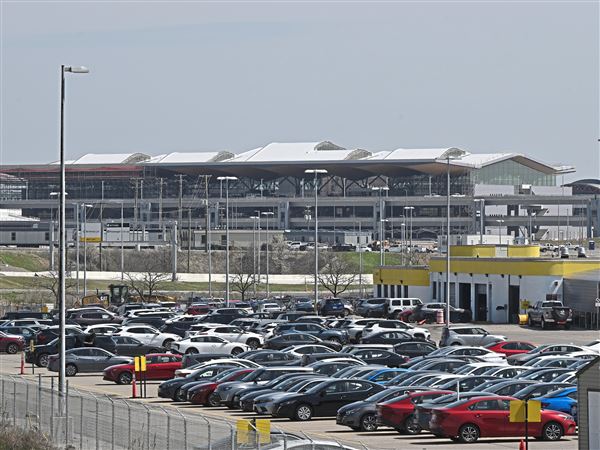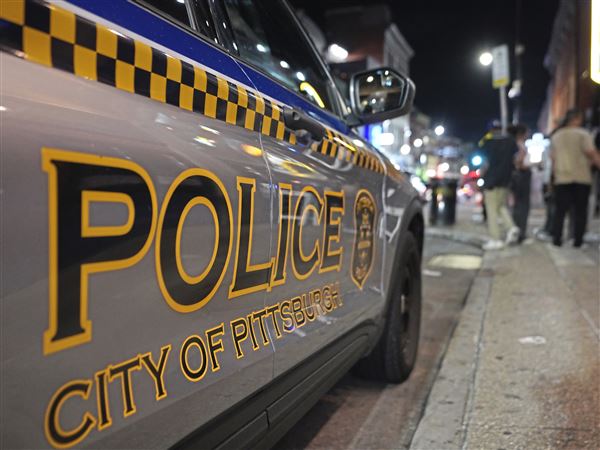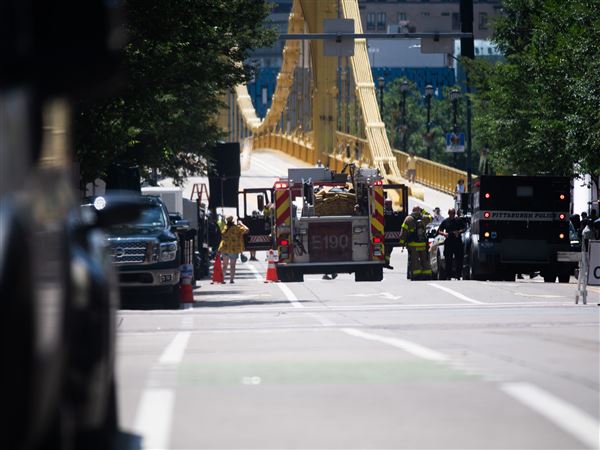Versailles Borough council meetings are notorious for dissolving into rowdy affairs, with residents yelling out of turn until council members move to have them ejected with the help of waiting police officers.
Last week, a controversial vote to eliminate the borough's police and contract with neighboring White Oak for police protection had citizens up in arms again.
Some audience members became so disruptive, council members could barely hear, let alone conduct a meeting.
After a handful of people were thrown out individually, Solicitor George Gobel summoned county police to "clear the room," ejecting everyone, including the borough police chief, so council could conduct the remainder of its meeting in peace. Members of the media were allowed to remain.
It's a move that has raised eyebrows among legal experts, who say the action may have violated Pennsylvania's open meetings law. While it's OK to eject audience members who are disrupting a public meeting, it's unacceptable, even illegal, to expel those who are acting appropriately, said Tom McGough, an attorney who specializes in media matters and represents the Post-Gazette.
"You can exclude disruptive people ... but you can't exclude nondisruptive members of the public," he said.
Borough resident Michelle Roka, whose husband, Charles, lost his job Jan. 20 when council voted to disband the police force, said she was videotaping the meeting and sitting quietly when a county police officer asked her to leave.
"I'm a property owner here in town, my husband's livelihood is on the line. ... I had a right to hear what was going to go on the rest of the meeting," she said.
It's unclear who initiated the order to have the room cleared. Mr. Gobel said he was acting on the direction of council President Patricia Brown; Mrs. Brown said Mr. Gobel acted on his own.
Mayor Emerson Fazekas said he believed that Mr. Gobel "stepped over his legal bounds." Council member Linda Sheedy said she couldn't trust a solicitor who did something she regarded as "questionable."
"If you're going to do something publicly that's legally questionable," she said, "what are you going to do when someone asks for a legal opinion?"
Mr. Gobel said he was uncertain whether every member of the audience was being disruptive, but that "there was a significant portion that was."
He added that it would have been impractical to sort out audience members who were yelling out of turn.
But Witold Walczak, an attorney for the American Civil Liberties Union of Pennsylvania, said, "Council has an obligation both under the First Amendment and the [Pennsylvania] Sunshine Act to attempt to remove only those people who are being disruptive.
"Someone who attends the meeting and behaves appropriately shouldn't be punished," he said.
Mr. McGough added that if it was impossible to figure out who was being disruptive, the meeting should have ended rather than continue out of the public's eye.
Still, Mr. Gobel argued that clearing the room was "entirely appropriate," given the continued disruptions of audience members.
"It has nothing to do with the Sunshine Law," he said. "You had a crowd that was disruptive, that repeatedly spoke out of turn ... they were yelling and screaming ... you couldn't hear Pat Brown speak."
Mr. McGough said if a "willful violation" is found, those held responsible could be charged criminally for violating the open meetings law. But prosecutions are rare and the sanction is a summary offense, equivalent of a traffic citation and a $100 fine.
Though no votes were taken after the room was cleared, any official action taken during a public meeting that is deemed illegal can be voided, Mr. McGough added.
First Published: January 29, 2009, 12:00 p.m.
















